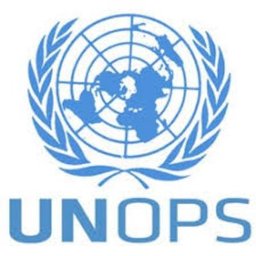Job Opportunities in Panama

October 31, 2024
United Nations
Panamá
Climate Change Adaptation Specialist
Result of Service
The Climate change adaptation specialist consultant will structure and implement a road map to bolster the development of a regional strategy of adaptation within the framework of the NAP projects of El Salvador and Panama. In addition to contributing to project management, he/she is expected to guide the work related to (a) Generation and dissemination of science-policy knowledge, (b) Technical inputs and advisory services, (c) Regional advocacy and outreach and (d) Intergovernmental and interagency process. Specific tasks and responsibilities The Climate change adaptation specialist will contribute to the effective implementation of the project by performing the following tasks: Outcome 3.1 - Output 3.1.4 Monitoring and reporting system established for the adaptation national priorities. (Technical Support and Operations - 30%) Associated project activities: • Activity 1.1: Support technical coordination of NAP (National Adaptation Plan) projects. • Activity 1.2: Support the development of reports, briefings and presentations to the steering committee, donors and relevant stakeholders. • Activity 1.3: Contribute to the preparation of comprehensive narrative and annual reports for donors, ensuring timely, technical consistent and accurate reporting. • Activity 1.4: Contribute to the harmonization between Adaptation initiatives and strategies, with the NDC, as well as contribute to the monitoring and reporting of national adaptation priorities. Responsibility: The consultant, in collaboration with the Regional Subprogramme Coordinator for the Climate Change Unit in UNEP LACO and the National Project Coordinators, will contribute to the coordination of technical aspects of National Adaptation Plan (NAP) projects and produce clear, accurate reports to ensure effective communication with donors and stakeholders. The consultant will collect and analyze scientific and normative knowledge to provide recommendations on the alignment of adaptation commitments, policy instruments, measures and indicators. The consultant will reflect this knowledge in communication efforts and tools to bolster de development of MEL systems. Outcome 3.1 - Output 3.1.3 Country ownership and technical capacities strengthened to lead the NAP process. (Communications and Outreach 20%) Associated project activities: • Activity 2.1: Provide technical advice to the communication strategy of the adaptation process in the NAP Portfolio and disseminate information on adaptation planning to promote engagement through communication pieces among other mechanisms. The communication strategy must include gender considerations. • Activity 2.2: Conduct two knowledge exchanges to countries with advanced development of their NAPs to learn about good practices on adaptation planning and implementation. • Activity 2.3: Provide technical assistance for the development of reader-friendly communication materials targeting different audiences summarizing the main findings of the NAP process review. Responsibility: The consultant, in coordination with the Regional Subprogramme Coordinator for the Climate Change Unit in UNEP LACO and the National Project Coordinators, will provide technical inputs and collaborate with the communications team to develop technical communications materials (such as infographics, policy briefs, notes, presentations, speaking points, webinars, workshops, strategies and other events) to share the work and lessons learned on adaptation in different projects. The consultant will design and implement knowledge exchanges to promote knowledge sharing among countries going through the NAP process. This might include the development of sessions in the NAP action weeks, Adaptation Action Weeks, Climate weeks, etc. Key themes might include, adaptation climate finance, MEL systems and private sector engagement. Additionally, the consultant will maintain and expand networks with national and international project partners, identifying new contacts to enhance collaboration and outreach. Outcome 3.1 - Output 3.2.2 Set of nationally agreed adaptation strategies to reach adaptation objectives. (Research and analysis 30%) Associated project activities: • Activity 3.1: Provide technical expertise for the development of existing national, sub- national and sectoral monitoring and reporting systems. • Activity 3.2: Provide support to organize workshops for relevant members of the NAP Portfolio stakeholders and memberships and other key actors to identify points of interaction with the monitoring and reporting system planned for the NAPs and thematic adaptation plans, as well as with the systems of the Climate Change National Plan (PNCC given its Spanish acronym), the NDCs (CBIT project), and the transparency portal and the Voluntary National Review to track progress in implementing the 2030 Agenda and particularly the SDG 13 Climate Action. • Activity 3.3: Review, analyze and synthetize available data and information on (i) the causes of observed impact events; ii) climate change projections and climate risk and vulnerability assessments, and the methodologies used; and (iii) current adaptation status (strategies, initiatives, etc). The consulted information should be relevant to the different NDC thematic areas and regions of the country. For this, sources such as the National Communications will be used. This analysis on current adaptation status will be an element to guide the NAP process and ensure policy coherence/ alignment in terms of adaptation priorities. • Activity 3.4: Scope alternative adaptation strategies to reach adaptation objectives, with emphasis on Eb A whenever possible and considering gender-responsive criteria. • Activity 3.5: Screen needs and opportunities for mainstreaming adaptation in the countries involved by reviewing planning instruments and budgets at the national, sub-national, sectoral and intersectoral, levels against information about climate change risks and vulnerabilities to incorporate adaptation criteria and practices in the NAPs. • Activity 3.6: Provide technical support for the identification of financing options, sources and mechanisms for the implementation of the NAP and the sectoral plans, including the barriers and opportunities associated to the options. Responsibility: The consultant, in collaboration with the Regional Subprogramme Coordinator for the Climate Change Unit in UNEP LACO and the National Project Coordinators, will provide technical expertise in the development of analytical reports, knowledge products, concept notes and science-based recommendations to strengthen adaptation policy processes and planning instruments. Furthermore, the consultant will lead the development and operation of a Regional Observatory of Adaptation (ROA) as a strategic tool to influence and enable the implementation of the Global Goal on Adaptation framework, and reflect on progress and barriers to adaptation, contributing to decision-making towards a regional climate change adaptation strategy. This work includes reviewing, analyzing and synthetizing available data and information on adaptation progress (Activity 3.3) and should be communicated as an input for the harmonization efforts to improve tracking and transparency (Activity 3.2) Outcome 3.1 – Output 3.1.5: Learnings from the NAP process adequately collected, stored and shared. (Strategy and lessons learned 20%) Associated project activities: • Activity 4.1: Identifying challenges, emerging issues, and solutions in supporting adaptation planning and policy processes in the LAC region. • Activity 4.2: Contribute to the development and growth of new work related to adaptation policy, expressed through the following types of interventions: - Generation and dissemination of science-policy knowledge - Technical support, capacity building and advisory services - Regional Advocacy and outreach - Intergovernmental and interagency process • Activity 4.3: Support fundraising efforts, co-creation strategies and internal financing arrangements based on existing work or new ideas. Focus areas may include: - Alignment and coherence of policy instruments across sectors and scales. - Integration of Climate Change Adaptation (CCA) and Disaster Risk Reduction (DRR). - Unlocking Nature-based Solutions (Nb S): Integration of the biodiversity and climate change agendas. - Financing mechanisms for adaptation - Development of effective Monitoring, Evaluation, and Learning (MEL) systems. Responsibility: The consultant, in coordination with the Regional Subprogramme Coordinator for the Climate Change Unit in UNEP LACO and the National Project Coordinators, will contribute to identify challenges and solutions in adaptation planning in the LAC region, while contributing to the development of adaptation policy through knowledge generation, technicalexpertise , and advocacy, and streamline fundraising and co-creation strategies, all of it, based on lessons learned from the NAP portfolio.
Work Location
Panama City, Panama
Expected duration
12 MONTHS
Duties and Responsibilities
The United Nations Environment Programme (UNEP) is the United Nations system's designated entity for addressing environmental issues at the global and regional level. Its mandate is to coordinate the development of environmental policy consensus by keeping the global environment under review and bringing emerging issues to the attention of governments and the international community for action. The UNEP Latin America and the Caribbean Office (LACO), located in Panama City, Panama works closely with the 33 countries of the region and its activities are integrated into the Medium-Term Strategy and the Programme of Work approved by the United Nations Environment Assembly (UNEA). In terms of addressing climate change, UNEP aims to support countries in the compliance of the objectives of the Paris Agreement and the priority actions defined in the countries Nationally Determined Contributions. The overall objective of UNEP´s Sub-programme on Climate Change is to strengthen the ability of countries to move towards climate-resilient and low emission strategies for sustainable development and human well-being. The expected accomplishment regarding climate change adaptation is that adaptation approaches, including an ecosystem-based approach, are implemented, and integrated into key sectoral and national development strategies to reduce vulnerability and strengthen resilience to climate change impacts. Furthermore, the UNEP´s Sub-programme on Climate Change is also committed to ensure that crosscutting issues such as gender equity and women empowerment are effectively undertaken in the development of its tasks to guarantee an equitable development in line with its adaptation objectives. To fulfill the objectives of the project, the UNEP LACO Office is recruiting a Climate change adaptation specialist consultant to provide technical and strategical expertise to UNEP in structuring an integrated vision of the interventions and added value of UNEP’s work in adaptation in the Latin America and the Caribbean Region. The main objective of the position of Climate change adaptation specialist consultant is to structure and implement a road map to bolster the development of a regional strategy of adaptation within the framework of the NAP projects of El Salvador and Panama. The NAP projects aim to strengthen institutional engagement and capacities to plan, finance, implement, monitor, and report strategic adaptation processes, considering stakeholders at multiple levels. The NAP projects seek to achieve its objective through four (4) components: • Adaptation planning, governance and institutional coordination strengthened. • Evidence basis produced to design adaptation solutions for maximum impact. • Private sector engagement in adaptation catalyzed. • Adaptation finance increased. Specifically, the Climate change adaptation specialist is expected to guide the work related to: - Generation and dissemination of science-policy knowledge - Technical input, capacity building and advisory services - Regional Advocacy and outreach - Intergovernmental and interagency process - Project management contributions The Climate change adaptation specialist consultant will operate under the overall supervision of The Regional Subprogramme Coordinator for the Climate Change Unit in UNEP LACO. The incumbent will work from Monday to Friday, 40 hours per week, full time basis and will be located at the UNEP LAC office in Panama City, Panama. Additionally, he/she will work in close collaboration with UNEP´s Climate Change team, the MARN in El Salvador, Mi Ambiente in Panama, national consultants, government and non-governmental counterparts. Travel might be needed for the execution of the consultation processes.
Qualifications/special skills
ACADEMIC: • Bachelor’s degree in natural sciences, biology, engineering, economics, law, development studies, international relations, social or political sciences or any other related field is required. • Master’s degree in climate change, environmental economics, environmental law, environmental management, sustainable development, natural resources management, public policy, or a closely related field is required. PROFESSIONAL: • Two (2) years of relevant working experience in environment management, biodiversity or climate change adaptation is required. • Experience in planning, implementation or monitoring of national, sectorial plans, programs, and/or projects related to climate change and/or environment is desirable. • Previous experience developing knowledge products on environment or climate change adaptation is desirable. • Experience in analysis, advocacy, research or development of international and national climate policy is desirable. • Familiarity with adaptation goals, indicators, metrics of adaptation at local, national or global level is desirable. • Previous experience with innovative finance mechanisms for climate adaptation is desirable. LANGUAGE: • Fluency in Spanish is required. • Confident level in English is required. SKILLS: • Knowledge of key topics related to climate change adaptation, the Paris Agreement, SDGs, the IUCN standard for Nature-based Solutions, is desirable. • Strong analytical skills to examine complex data is desirable. • The ability to write in an informative and appealing way and identify key messages is desirable. • Excellent verbal, written, and interpersonal communication skills to facilitate complex reports for a target audience is desirable. • Facilitation of new approaches to decision making e.g., adaptation pathways is desirable. • Convening multiple actors across the relevant decisions is desirable. COMPETENCIES: • Professionalism: The professional possesses a strong sense of agency and takes the initiative and assumes responsibility for making changes which often requires building partnerships and alliances to achieve shared goals. They are strategic thinkers, able to see the bigger picture and plan for the future and able to make a compelling case when conveying their vision, inspiring others to act. They are adept at working with decision-makers, influencing strategic directions and aligning efforts with overarching goals and able to tie various elements and concepts together to provide a holistic understanding of complex situations. • Communication: Capacity to convey ideas and information clearly and succinctly. Their critical thinking skills enable them to analyze information thoughtfully and with discernment. As facilitators, they are able to guide and streamline processes, foster a conducive environment for collaboration and effective teamwork. Importantly, their role as a listener signifies an openness to different perspectives and a genuine interest in understanding the perspectives of others. They are able to influence others through compelling arguments. The skill of compelling storytelling enhances their ability to engage and connect with audiences, making complex concepts more accessible. Rethinking is a key aspect of their approach, indicating a capacity for innovation and adaptability and quality control reflects a commitment to maintain high standards in their work. • Teamwork: The professional is able to work effectively as part of a multidisciplinary team to achieve organizational goals and to take leadership when appropriate; solicits input by genuinely valuing others’ ideas and expertise; is willing to learn from others; places team agenda before personal agenda; supports and acts in accordance with final group decision, even when such decisions may not entirely reflect own position; shares credit for team accomplishments and accepts joint responsibility for team shortcomings. • Working with complexity: Capacity to identify influential points within a system that can be leveraged to achieve desired changes. This competence, aligned with the ability to connect from data to information to strategy/policy, suggests being able to shift between holistic approach, ‘whole system’ approach and specific opportunities to create practical change. The ability to not only gather and analyze the relevant data but also translate this information into actionable strategies and policies. Willingness to adjust strategies based on evolving circumstances. Acknowledgment of the dynamic nature of climate issues and the need for continuous learning.
Languages
Not available.
Additional Information
Not available.
No Fee
THE UNITED NATIONS DOES NOT CHARGE A FEE AT ANY STAGE OF THE RECRUITMENT PROCESS (APPLICATION, INTERVIEW MEETING, PROCESSING, OR TRAINING). THE UNITED NATIONS DOES NOT CONCERN ITSELF WITH INFORMATION ON APPLICANTS’ BANK ACCOUNTS.
Latest Job Opportunities

November 10, 2024
Cervecería Nacional
BDR I - Ejecutivo de Ventas (Temporal 3 meses) - La Chorrera
Panamá
OTHER
View DetailsSimilar Jobs

September 10, 2024
UNOPS
Coordinador (a) Técnico (a) de Proyectos (Apoyo a la Gestión de Proyectos - Especialista)
OTHER
View Details


September 9, 2024
Universidad Del Valle De Guatemala
Especialista I (Asesor De Prevención) Panamá
Panamá
View DetailsNew Jobs from This Company

November 8, 2024
United Nations
Program Management support to the Making Cities Resilient 2030 (MCR2030) initiative in the Americas and the Caribbean
Panamá
View Details

